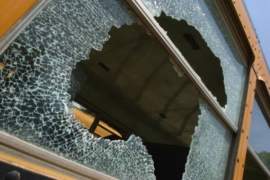
The Facts on Looting Prosecution

In most countries, looting is illegal. However, penalties for the crime can vary greatly. In most places, many different people can be prosecuted for the same crime. For example, the person that hires someone to go and dig at a site is just as guilty as the person that removed the item from the site. The individual that sells the item is of equal guilt as the person that buys the item. In fact, all of those people can be prosecuted. Due to technology, it can sometimes be difficult to ascertain who these individuals are. For example, a person that sells an item online may have covered their tracks in such a way that it is impossible to track the sale back to them specifically. In addition, many countries have governments that are compliant in the crime of looting and they benefit from the sale of archaeological items that were obtained illegally. In reality, it is difficult to put a price on items that looters take from archaeological sites. That loss translates to questions about history that may remain unanswered if the artifacts are not recovered from the looters. Louisiana suffered from massive looting after hurricane Katrina. In that case, many individuals were simply desperate to survive and were often found to be looting supermarkets or drugstores. However, more frequently, looting was done by individuals that wished to benefit financially form the disaster. Looting laws in Louisiana offer a glimpse into the penalties associated with looting. Looters can face fines up to $10,000. Looters in Louisiana can also face jail time of up to fifteen years. Individuals found guilty of looting can actually face both the fine and the jail time. Looters that commit the crime during a natural disaster or state of emergency will face fines and sentences of a differing nature. Their sentence is likely to depend on the nature of the crime, such as items looted. Looters that steal in order to feed their family during a natural disaster will likely face less time than individuals caught stealing electronic or other valuable equipment with the hopes of making a profit. Prosecution for looting can sometimes be difficult. In archaeological looting, the crime is not always detected immediately and the perpetrator may be long gone. The artifact may not be discovered until it is put for sale on the black market. However, looting that takes place during a natural disaster may be more detectable, depending on the presence of law enforcement. Oftentimes, law enforcement focuses their efforts on rescuing people and providing medical aid during disasters. Looting is difficult to prosecute if the crime is not immediately detected. Many times, perpetrators are long gone before the crime is even discovered. In cases where individuals are looting to provide for survival necessities, many jurisdictions will punish the crime much less harshly than those that are committed with the hope for financial gain. Some jurisdictions make that distinction by calling survival looting scavenging. That act often takes place during war, where individuals cannot otherwise survive. Those individuals often avoid prosecution.



















